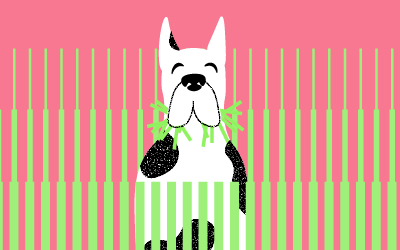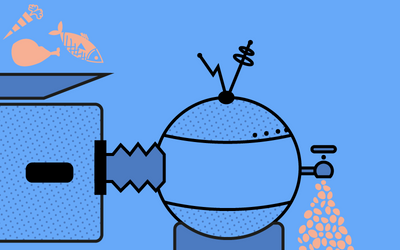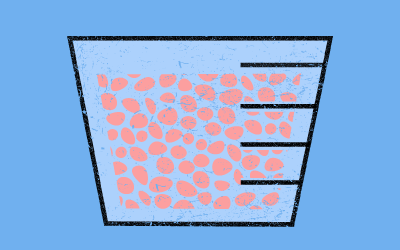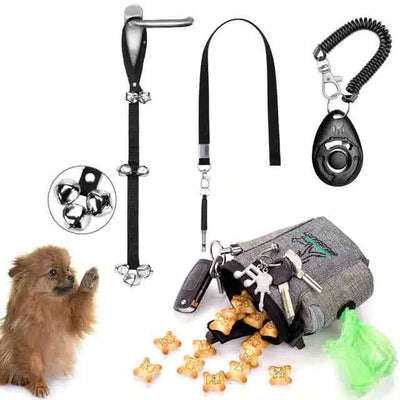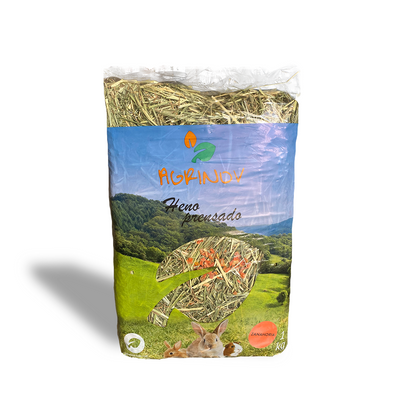Why do dogs eat grass? Surely you've heard the classic answer "they eat grass to purge" because that's not exactly the case, at least it's not scientifically proven.
This question of why dogs like to eat grass is a topic that has remained on the tables of many veterinarians and animal behavior experts without a definitive answer.

Other common explanations that are usually found when asking about this topic is that they do it to compensate for some nutritional deficiency due to the dog's usual diet.
However, although no specific reason has been found for why they eat grass, some studies focused on this topic have been able to rule out explanations like this, it has been shown that grass intake is totally independent of the amount of food and the type. of diet they have.
Now we are going to tell you some possible explanations for why your dog eats grass:
My dog eats grass to purge
It is the most popular answer and the one we mentioned at the beginning of the post.
This explanation is based on the study of their genetic inheritance, although it is true that today companion dogs bear very little resemblance to wolves. Both in terms of habits and in their customs and needs. It is true that there are some traits that continue to be inherited generation after generation and one of those traits may be this behavior.
Wolves are known to eat grass, largely to purge themselves of any parasites they may have due to the diet they eat.
However, companion dogs do not need to be purged in this way because, to begin with, it is rare if not impossible for them to be exposed to many of those parasites that wolves purge themselves of. As those responsible for their health, we provide them with medications and diets that keep them protected against any possible infection.

Due to anxiety or excitement:
Another explanation that especially makes sense in puppies and young dogs is that they do it out of anxiety and/or boredom. Just like chewing on shoes or furniture, dogs may eat grass to release that tension or because they find it entertaining and stimulating.
In this case, we can increase the walking time or the hours of play as well as the intensity to satisfy their need to release energy. By doing this you will likely notice a change in the frequency with which they eat grass, however it is not a solution. absolute.
For digestive problems:
Although it is less common, the explanation is also given that dogs eat grass because they have digestive problems and that it is one of the symptoms that our furry friends usually present when they have a problem.
Although eating grass is not directly related to any disease, if in addition to having this compulsive behavior you can identify other symptoms such as vomiting, pain, loss of energy, lack of appetite, diarrhea or blood in the urine and/or feces, we recommend that you Go to a trusted veterinarian since there could be many reasons why this clinical picture occurs.
It is essential to give our dogs adequate food, designed with a specific balance of nutrients for their needs. A correct diet prevents health problems and promotes well-being. To avoid health problems and ensure its well-being, it is vital to choose the right food for your dog .

Should I stop my dog from eating grass?
In principle, the behavior of eating grass is a natural behavior that, unless you want to prevent your dog from eating part of your garden, you can let go.
In any case, it is important to highlight the risks that this can have, especially if your dog eats grass outside the home. The main risk of doing it outside the home is that we do not know how or what the grass has been treated with and if it has been treated with a chemical pesticide, our dog could become poisoned.
Furthermore, another risk that we can encounter when allowing this behavior is poisoning from ingesting a poisonous or especially harmful plant for them.
Some examples of these plants that we have to avoid are wild saffron, tulips, flowering laurel, kalanchoe, Sago palm, the hanging plant Potos or Aloe Vera among others.

In conclusion, it is advisable to prevent your dog from eating grass outside the home and if you have one or more plants in the garden that may be toxic to him.
If you do not have any risk plants and only eats grass in your garden without vomiting or any other secondary symptoms, you can let it enjoy its wild salad.
If you have any questions about this topic or any other, do not hesitate to contact us, we will be happy to answer them. Until next time =D


